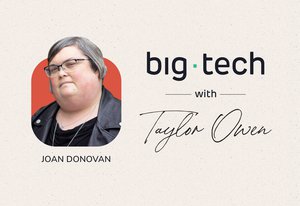The past couple of weeks have seen turmoil in the US stock market. It all started when Ryan Cohen, ex-chief executive of online pet food retailer Chewy, started buying up stock in the retail store GameStop last fall, and gathered steam when he joined GameStop’s board in early January. This bricks-and-mortar company hit hard times during the pandemic, but with Cohen and other new board members with e-commerce expertise in place and vaccines on the way, perhaps the shares were undervalued. Several large hedge funds took significant short positions on the stock, which drew the attention of an online community of Reddit market watchers called WallStreetBets. The group quickly built an online movement (largely propelled by memes) to drive up the stock price and expose the position of the hedge funds.
Hedge funds raced to buy back their stock to close their short position, which, in turn, pushed the stock up more. In a flurry of trading, GameStop stock soared to nearly 2,500 percent of its price at the start of the year. One of the hedge funds that initially shorted the stock needed to get bailed out to avoid bankruptcy, and the S&P 500 dipped as the hedge funds sold their “winners” to make up for their losses. Then, to stop the bleeding, stock-trading and investing app Robinhood (along with online broker TD Ameritrade, among others) put a temporary block on buying any more GameStop shares.
The internet took on Wall Street. The masses democratized finance. David chastened Goliath — or so the breathless accounts would have us believe.
But is this really true? What does the GameStop story really tell us about the financial markets and the power structures they reflect? Is this a turning point for a more equitable financial system, or just another sign that the system is rigged?
It is helpful to look at this moment as a glimpse of our rapidly evolving financial infrastructure. Doing so allows us to see the new platforms, technologies, forms of communication and coordination that make up our financial system. In her recent book New Money: How Payment Became Social Media, Lana Swartz argues that we should view money not simply as state-backed currency or financial markets but as a communication technology.
Swartz describes a moment in the wake of the 2008 financial crisis in which distrust in the markets, the ubiquity of mobile computing, and the rise of social media led to a new ecosystem of apps, digital payment companies and digital currencies. Largely unremarked until now, this new layer of financial infrastructure has suddenly zoomed into view.
Looking at money as communication infrastructure allows us to more clearly see two new elements of the GameStop saga. The first is a new generation of internet platforms for retail investing, such as Robinhood. These platforms gamify the market and allow individuals to make the commission-free trades that enabled the stock surges we saw in late January. The second is the role that social media sites (the WallStreetBets subreddit, for example) play in opening up the discourse about financial markets. On these forums, stock information is shared, wins and losses are discussed, and in cases such as these recent ones, memes are created and collective buying runs spawned.
As in other moments of online revolution, the combined ability to widely share previously rarified information and to act in networked collective action was a powerful force. But was it really a populist uprising and a democratization of finance?
First, according to Swartz, it is not clear that WallStreetBets is the source of ideological uprising that it is being portrayed as. For years, the forum existed mostly as a place for bragging about small bets and creating memes about stocks. It was a place where wins and losses were both celebrated and mocked. The GameStop stock run took hold, and many jumped on the David versus Goliath bandwagon, but class revolution is not the core of the WallStreetBets identity. And while Tesla’s Elon Musk was quick to join on the meme bandwagon and has become a hero of the Davids against the Goliaths of Wall Street, he is deeply incentivized in the debate about short selling. It is not entirely clear if market hedges against the irrational exuberance of Tesla stock — and the cult of personality around the chief executive — contribute to a responsible or reckless market dynamic.
Second, it is far from clear that Robinhood is democratizing finance. The site is backed by some of the most powerful venture capital firms (we can speculate that they are working toward an exit to a major bank), and sells its order flow to trading firms such as Citadel Securities and Virtu Financial. Citadel uses that data to place its own orders before fulfilling the orders from Robinhood. While they do allow retail investors, they are, in many ways, taking data from the poor to support the rich. And even though one of the hedge funds that shorted GameStop went bankrupt, it was bailed out by Citadel. Not exactly a triumph of the Davids.
So, if this moment was not one of financial democratization, what was it? In short, it revealed the coming platformization of the financial sector. Just as Facebook and Google promised to democratize information, Robinhood and Reddit promise to empower the citizen investor. But now, just as then, the reality is that the financial incentives embedded in the platforms determine who really benefits. There are widespread risks to leaving platforms to scale without meaningful accountability.
In this sense, the GameStop saga might present us with something rarely found in the fast-paced world of digital innovation: a chance to see the future, reflect and learn from our past mistakes. A platform do-over.
Doing so will mean acknowledging that self-regulation is folly, and that the emergence of new platforms must be incentivized by public, rather than private, interest. This will require regulation that protects the retail investors without impeding their ability to participate in the market. We can democratize the market, but that is best achieved with regulation that facilitates much needed accountability.
The powerful combination of WallStreetBets and Robinhood offers a glimpse of what a platform-based financial sector might look like. We would be wise to learn the lessons from our recent past and ensure that this infrastructure actually serves democratic interests.



